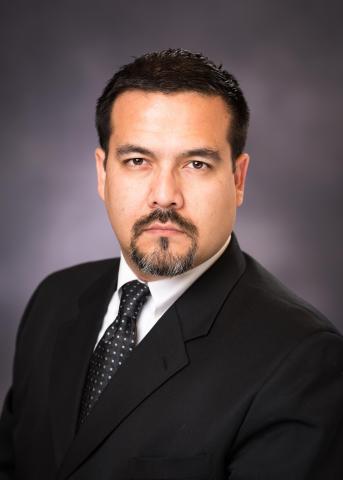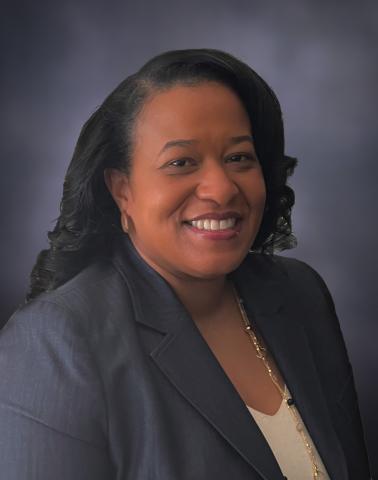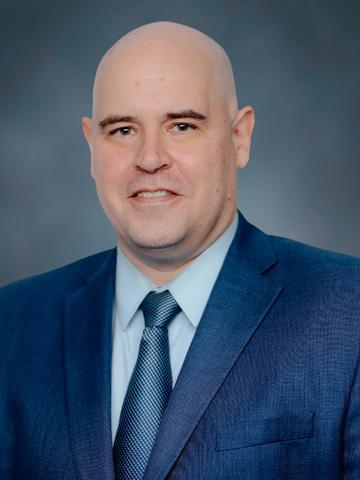Executive Leadership

The Executive Director is the Senior executive within the organization, who plans, develops, establishes, and implements policies and strategic objectives for the organization. The ED is responsible for the ongoing operations and performance of the entire organization and sets the internal organizational structure of Fund staff, approves personnel decisions, and sets the compensation of Fund employees in a manner consistent with the Compensation Policy and budget established by the Board. The Executive Director reports to the President as needed, and to the Board on at least a monthly basis, on all significant action taken under his delegation of authority.
Key areas of oversight include actuarial, administration, audit, benefits, communications, compliance, financial, investment, internal and external legal functions, when specifically delegated by the Board in conformance with fiduciary standards, program management, and technology.
Administrative Services Department

The Administrative Services Department is responsible for supporting the work of CTPF across the organization. The Director of Administrative Services also serves as the Election Coordinator for the annual CTPF Trustee Elections, supports the work of the Board of Trustees, and manages the member records and imaging functions for the organization.
Key areas of responsibility include:
- Supporting the Board of Trustees and Executive and Leadership Team
- Management of the CTPF offices
- Supporting the Board in coordinating Trustee meetings and preparing supporting materials
- Recording and transcribing meeting minutes
- Arranging meeting and conference travel
- Handling Trustee requests
- Ensuring Trustee annual regulatory compliance and filings
- Management of member records and imaging
Benefits Department

The Chief Benefits Officer oversees the administration of all pension and retirement-related benefits and member services to ensure member satisfaction, compliance with statutory law, and issuing benefit payments.
Key areas of responsibility include:
- Health Insurance
- Member Services
- Pension Benefits and Refunds
- Service Purchases
- Death and Disability Benefits
- Quality Assurance and Compliance
Communications Department

The Communications team manages and produces public-facing communications focusing on three major areas of responsibility: print and online publications, media/community relations, and social media/website outreach.
Key areas of responsibility include:
- Publishing and distributing Pension News to active and retired members three times per year
- Delivering the annual Economic Impact Statement to state and local legislators
- Collaborating with the Finance department to create the Annual Comprehensive Financial Report (ACFR)
- Parsing key information from the ACFR to summarize major activities in the Popular Annual Financial Report (PAFR)
- Collaborating with the Benefits department to produce an updated Health Insurance Handbook for the Open Enrollment period
- Digitally distributing Monthly E-News to members and other interested parties
- Collaborating with the Investment department to illustrate CTPF’s diversity efforts in the Governor’s and Senate Reports
Employer Services

The Employer Services Department oversees the processes and procedures to maintain the integrity of the internal control of all Employer Reporting functions.
Key areas of responsibility include:
- Conducting Employer Audits to ensure accurate contributions are reported on behalf of members.
- Managing the reporting function for all employers and overseeing the Employer Reporting System portal functions.
- Ensuring that employer contribution data and funding is received, verified and recorded on behalf of members.
- Billing for late payroll submissions
Enterprise Program Management Office

The EPMO provides Project Management leadership across the organization, related to the methodology, process, and associated guidelines for the Fund's project portfolio. The EPMO works collaboratively to identify, facilitate, and manage projects within the organization that align with business objectives while minimizing risk, and helping the Fund prepare for the future.
Key areas of responsibility include:
- Management all projects in the Fund’s portfolio, ensuring efficient processes, quality assurance, timely completion, and regulatory compliance.
- Stewardship of the governing process including management of steering committees and prioritization groups.
- Oversight of Project TITUS, a transformational, multi-year project to replace the Fund’s Pension Administration System.
Finance Department

The Finance Department is responsible for the annual external and internal reporting of CTPF’s finances.
Key areas of responsibility include:
- Monitoring and reporting of expenditures (including member payments and operating expenses).
- Receipting and depositing of all revenues.
- Accounting for all assets and liabilities of CTPF through internal and external reporting.
- Demonstrating the accuracy of CTPF financial records and ensuring compliance with accounting methods through the annual external audit process.
- Coordinating and monitoring the Fund annual actuarial valuation process.
Human Resources Department

The Human Resources (HR) Department serves as a resource to all staff by providing a safe and confidential place to discuss any employment-related issues or concerns. HR works closely with employees by bringing new hires onboard, providing staff with developmental opportunities, maintaining a confidential environment, working through conflict resolution, and seeking employee engagement opportunities.
Key areas of responsibility include:
- Partnering with all CTPF staff and managers to oversee various aspects of employment
- Recruiting for various roles and functions
- Providing staff with a performance management system
- Processing employee payroll
- Ensuring workplace legal compliance and safety
- Partnering with CTPF Staff to ensure a positive workplace culture
Information Technology Department

The Chief Technology Officer is a strategic leader within the IT Department who plays a pivotal role in driving technological innovation and ensuring seamless operations.
Key areas of responsibility include:
- Technology oversight and optimizations
- Aligning technology initiatives with organizational goals
- Identifying and implementing solutions to improve CTPF operations

The Chief Information Security Officer (CISO) principal areas of focus include IT infrastructure technology and information security. The CISO position directs all areas and aspects of IT infrastructure and develops and implements an information security program that safeguards CTPF’s systems, communications, and assets.
Key areas of responsibility include:
- Systems, network, and cloud administration and operations
- Identity and access management
- Cybersecurity
- Staff education and support
- Governance, risk management, and compliance
Internal Audit Department

Internal Audit is an independent, objective assurance, and consulting activity designed to add value and improve an organization’s operations. It helps an organization accomplish its objectives by bringing a systematic, disciplined approach to evaluating and improving the effectiveness of risk management, control and governance processes.
Under the direct supervision of the Executive Director and the Finance and Audit Chair of the Board of Trustees, the Director of Internal Audit oversees the risk assessment process and the development, implementation, execution, and maintenance of the annual internal audit plan. The Director of Internal Audit works with the Executive Director and Senior Fund leadership to ensure the Fund’s compliance with all applicable statutory requirements, rules, and internal policies. The Director of Internal Audit is a member of the senior leadership team and serves as an advisor to the Executive Director and senior staff on matters of compliance, business procedures, and effectiveness of internal controls. The Director of Internal Audit will liaise with CTPF’s External Auditor.
Investment Department

The Investment Department is responsible for managing and directing the operations of CTPF’s investments in accordance with the Illinois Pension Code, the Investment Policy Statement, the Board Rules, Orders, and Resolutions, and all applicable laws. With the support of the Consultants, the Investment Department provides ongoing performance evaluation and due diligence for all investment managers. The Chief Investment Officer, Investment Staff, and the Consultant act as fiduciaries to CTPF.
Key areas of responsibility include:
- Review asset allocations, investment strategies, strategic planning, performance and recommending new investment opportunities based on CTPF’s risk/return profile
- Setting policies, investment strategies, asset allocations, monitoring results, overseeing the plan and representing the plan on behalf of the beneficiaries
- Implementing policies, manager structure, manager selection, and manager due diligence
- Determining the optimal allocation of a portfolio among broad asset classes
- Completing annual regulatory reports such as the Illinois Economic Report, the Illinois Senate Hearing Questionnaire, and the Governor’s Report
Legal Department

The Legal Department advises the Board and CTPF staff on legal issues impacting CTPF, both on a day-to-day basis and at Board and Committee meetings. The Legal Department works closely with the Board’s fiduciary counsel and oversees the work of CTPF’s other outside counsel, including litigation, investment, tax, and securities class action litigation counsel.
Key areas of responsibility include:
- Drafting and updating Board policies
- Managing CTPF’s contract and procurement process
- Processing FOIA requests
- Assisting all CTPF departments with legal matters, including legal and regulatory compliance, contracts, human resources issues, litigation matters, interpretation of the Pension Code and other laws, the Open Meetings Act, tax matters, and miscellaneous other legal issues.